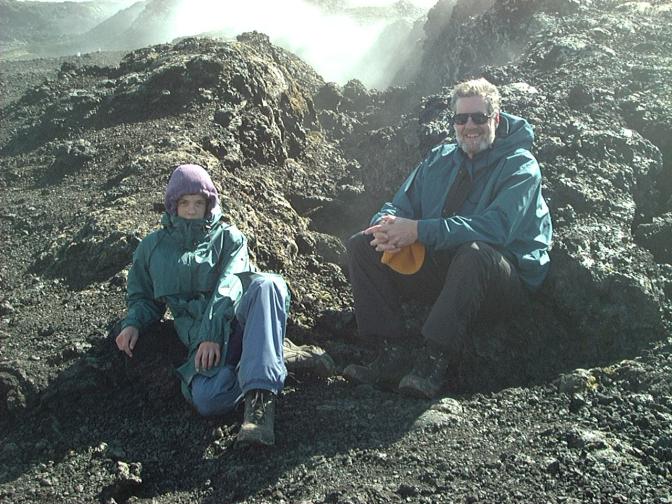

Hello, I'd like to tell you a bit about myself and what I hope to accomplish as Principal Investigator (PI) of HiRISE.
Unlike many of my peers, I did not want to become an astronaut as a teenager, during the Apollo missions. It was the environmental movement that I cared about, and the Moon and views from space showed that our home planet is precious and unique. I studied Forest Biology, worked on soil conservation and reforestation in the Peace Corps (Guatemala), and worked for the Soil Conservation Service. But scientific research was in my blood, so I returned to school to study geology and was lucky enough to get a job at the U.S. Geological Survey's Center for Astrogeology in Flagstaff, Arizona. I found image processing to be especially rewarding, and processed color image mosaics of many planets and satellites, including Mars. These images have been reproduced in hundreds of books, magazines, and television programs, and have probably done more to advance planetary exploration then all the scientific papers I'll ever publish. In 1996 I moved to the University of Arizona, where I am now a professor of planetary science.
To my surprise, I now find myself in a strong position to influence the lives and careers of smart young people such as students who want to explore Mars. I arrived at this position because I was skilled (or at least diligent) at processing and analyzing digital images, alone with a computer, not because I was good with people. My personal goal for the future is to learn how to make the most of this opportunity. When assembling the HiRISE science team, I needed people with all of the essential scientific and technical skills, but I also wanted people who would share “The People's Camera” philosophy. I consider myself immensely lucky to have successfully attracted such a terrific team.
HiRISE is crucial to finding the best locations to land, explore Mars on the surface, and collect rocks to return to Earth. NASA's Mars Exploration Program is focused on finding evidence for past or present life on Mars. Actual discovery of Martian life would be of enormous significance to basic science, but nobody knows the chances of success. I've struggled a little to decide what I think about this emphasis on finding life. Our home planet has major environmental problems that are not receiving the attention needed to enable much of Earth's people to live quality lives. Why spend billions of dollars to explore Mars instead of addressing critical problems on this planet? But if we cancelled Mars exploration, the funds would not necessarily go towards conservation. Our priorities need to change. Maybe the search for life on Mars will help make that change, by making us better appreciate the rarity of abundant and complex life.
